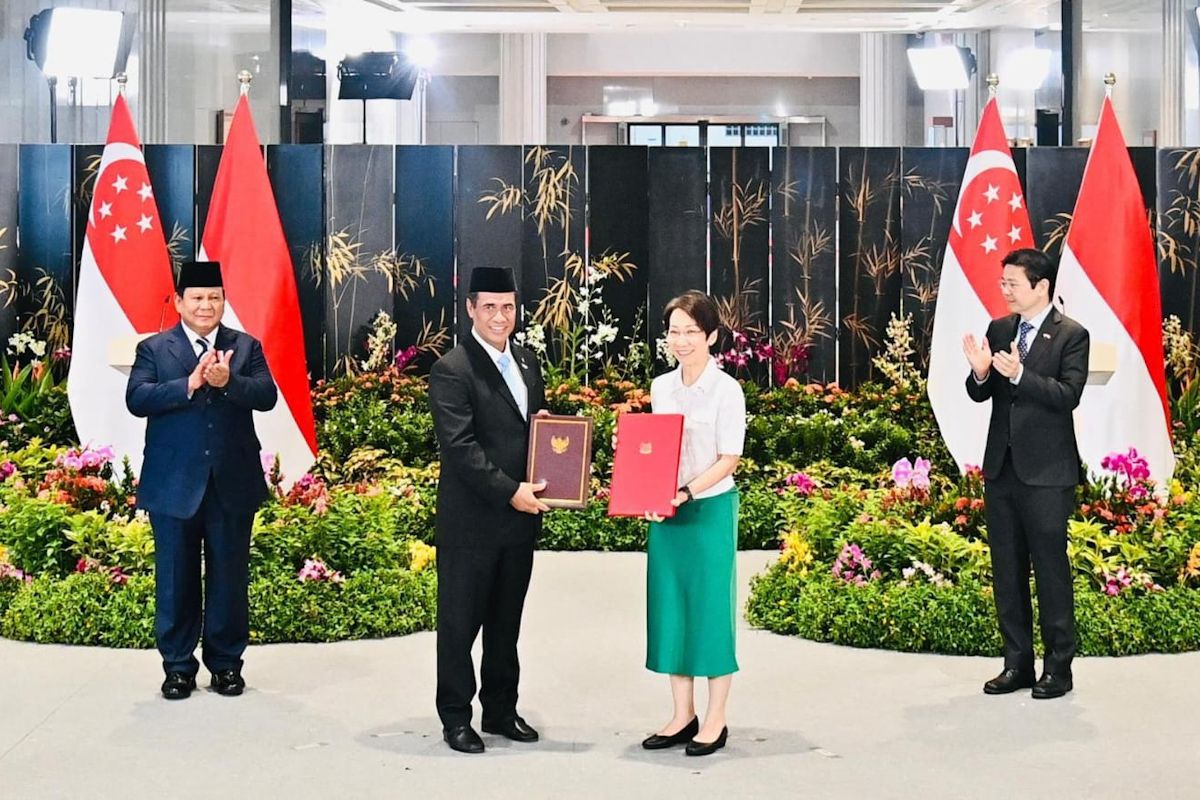In an era of climate uncertainty and growing population demands, food security has become a critical issue for many nations. Southeast Asia, a region heavily reliant on agriculture, is responding with strategic cross-border collaborations. Recently, Indonesia and Singapore signed a new agreement focused on food security agricultural technology cooperation, marking a pivotal step toward a more sustainable and resilient regional food system.
A New Era of Bilateral Collaboration
The agreement between Indonesia's Ministry of Agriculture and Singapore Food Agency (SFA) is designed to deepen cooperation in modern agriculture, smart farming, and food innovation. This marks a continuation of longstanding bilateral ties but elevates the focus on food resilience amid climate change, inflationary pressures, and geopolitical uncertainties.
Indonesia brings to the table its expansive agricultural land, diverse agro-climates, and a large labor force. Meanwhile, Singapore contributes advanced technology, capital investment, and strong regulatory systems for food safety. This complementary dynamic underpins the new food security agricultural technology cooperation initiative.
The partnership aims to bridge supply and innovation: Indonesia will serve as a production hub for fresh produce, proteins, and processed foods, while Singapore will assist with cutting-edge farming methods and distribution technologies.
Key Focus Areas of the Cooperation
1. Smart Farming and Precision Agriculture
Smart farming technologies are at the heart of this collaboration. Singapore has become a leader in vertical farming, hydroponics, and automation. Through the cooperation, Indonesia will have access to this innovation to modernize its agricultural practices. Precision agriculture — which uses drones, AI, and IoT to monitor soil health, irrigation, and pest control — will be piloted in several Indonesian provinces.
These tools will help smallholder farmers improve productivity and reduce waste. For example, AI-enabled sensors can guide fertilizer usage, increasing yield while reducing environmental impact. The integration of satellite data for climate forecasting will also improve risk management in farming cycles.
2. Cold Chain and Logistics Infrastructure
Another major component is the development of robust cold chain logistics. In Indonesia, post-harvest losses remain a significant challenge, with up to 30% of crops lost due to poor storage and transportation. Singapore will support the development of refrigerated transport, smart storage facilities, and digital traceability systems that ensure product quality from farm to table.
By upgrading the logistics infrastructure, both countries hope to create a more reliable food trade pipeline. Singapore will benefit from consistent supply, while Indonesian farmers will gain access to high-value export markets.
3. Urban Farming and Agritech Hubs
As part of Singapore’s “30 by 30” food strategy—producing 30% of its nutritional needs locally by 2030—the city-state has invested heavily in agritech startups. Under this new agreement, agritech hubs will be developed in Indonesia with funding and technical support from Singaporean firms.
These hubs will serve as innovation centers for research in crop engineering, aquaculture technology, and food processing. They will also act as training grounds for young entrepreneurs and agricultural professionals from both countries, fostering a new generation of tech-savvy farmers.
Mutual Benefits of the Partnership
This strategic partnership offers a host of benefits for both nations.
For Indonesia:
- Technology Transfer: Access to Singapore’s smart farming technologies can accelerate agricultural modernization.
- Export Expansion: With improved food safety and quality standards, Indonesia can expand its food exports not only to Singapore but also other ASEAN and global markets.
- Rural Development: Modern farming and logistics infrastructure will create jobs, reduce poverty, and enhance the livelihoods of rural communities.
For Singapore:
- Food Resilience: Reducing overreliance on distant suppliers, especially during crises like pandemics or war, is critical. Indonesia offers proximity and production capacity.
- Innovation Testing Ground: Singaporean startups can test and scale their agricultural technologies in real-world settings, providing valuable data and commercial viability.
- Stronger Regional Ties: The partnership strengthens diplomatic and economic relations in Southeast Asia, reinforcing Singapore’s role as a regional innovation leader.
The Road Ahead: Implementation Timeline and Targets
The agreement outlines a clear roadmap for implementation over the next five years:
- Year 1–2 (2025–2026):
- Launch pilot projects in West Java, Sumatra, and Batam focused on precision farming, aquaculture, and cold chain logistics.
- Year 3–4 (2027–2028):
- Scale successful pilot programs to other provinces. Establish joint research facilities and initiate workforce training programs.
- Year 5 (2029):
- Develop a regional food export corridor with streamlined trade regulations, certification standards, and mutual recognition of food safety audits.
In addition, both countries plan to pursue public-private partnerships to attract investment in agritech startups and food innovation labs. Singaporean VC funds and Indonesian agriculture conglomerates are expected to co-invest in emerging technologies and infrastructure.
Regional and Global Implications
The significance of this food security agricultural technology cooperation extends beyond the two countries involved. It signals a broader regional movement towards integrating agriculture with digital transformation. Other ASEAN members, such as Malaysia, Vietnam, and Thailand, are watching closely and may follow suit.
Moreover, this model of cooperation aligns with several UN Sustainable Development Goals (SDGs), including Zero Hunger (SDG 2), Industry, Innovation and Infrastructure (SDG 9), and Partnerships for the Goals (SDG 17).
As climate challenges grow more acute and population pressures mount, such partnerships are no longer optional—they’re essential.
Conclusion
The newly signed Indonesia–Singapore agreement is more than just a diplomatic formality. It is a forward-looking collaboration designed to address some of the most pressing challenges in agriculture today. With smart farming, cold chain modernization, and urban agritech development, this food security agricultural technology cooperation sets a precedent for how regional neighbors can collaborate to ensure a sustainable food future.
By marrying Indonesia’s natural agricultural strengths with Singapore’s innovation and infrastructure, the partnership promises not only mutual benefits but also a resilient and secure food system for Southeast Asia. It is a win-win initiative that could very well become a model for global cooperation in the decades ahead.
Read More






 Sunday, 01-03-26
Sunday, 01-03-26







